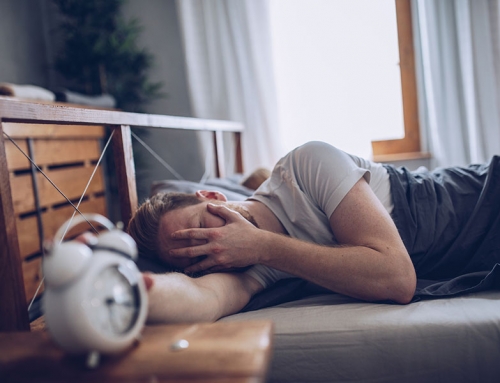Is morning dizziness part of the reason you’re looking to make some changes to your sleep system? Or, are you simply look to find out why you’re experiencing this worrying symptom?
This post looks into the main causes of dizziness in the morning, as well as how you can create a sleep setup that promotes a restful and fully restorative night’s sleep.
What defines morning dizziness?
Table of Contents
Let’s get the symptoms defined before we look into causes and solutions. General dizziness is described by the Mayo Clinic as feelings of faintness, light-headedness, weakness, wooziness, or unsteadiness.
This means that feeing dizzy is differentiated from feeling nauseous, as well as from the effects of vertigo, a recurring feeling like the world is moving around you. Read more about vertigo in this article from NHSInform.
Common causes of morning dizziness
In general, morning dizziness is a non-serious condition, which happens to a lot of us and shouldn’t be a cause for concern. Healthline highlights dehydration, low oxygen levels, and low blood sugar as the three most common causes of dizziness symptoms.
Often, nighttime dehydrated is a result of drinking alcohol before bed, exacerbated by not replacing fluids upon waking up in the morning. Other causes include exercising without replenishing lost sweat and spending all day in a hot or poorly ventilated environment. Beyond dizziness, too little fluid in your system can also show up through symptoms of confusion, and a noticeable drop in the need to urinate.
According to Dr. Grossman of Harvard Medical School, “when you don’t have enough blood sugar, every system in your body goes on reserve to use as little energy as possible, including your brain, making you feel lightheaded or confused.” Low blood sugar in the mornings may be a signal to think a little more carefully about your diet and mealtime schedule. If dizziness is blood sugar-related, a good breakfast, including some freshly squeezed fruit juice, should help.
Sleep apnea is a condition that causes you to stop breathing for several seconds at a time throughout the night. That lowers oxygen levels in your blood, which can make you dizzy. Mild stages of heart failure—or simply age—can also cause a drop in blood pressure, leading to similar symptoms, especially when transitioning from lying to standing.
Other possible causes of dizziness
In fact, the sudden change of balance as your body wakes up and moves from lying to standing can be a cause of dizziness in itself. Fluid shifting inside your inner ear as you stand commonly results in feelings of nausea, vertigo, or dizziness.
If your dizziness gets worse during a cold or when you have blocked sinuses, it’s a sign you’re dealing with an inner ear issue. Untreated, this can lead to benign paroxysmal positional vertigo (BPPV), which usually causes intense, brief episodes of dizziness or vertigo upon when changing position in bed or getting up in the morning.
BPPV occurs when small injuries occur in the vestibular system—the workings of the inner ear that detect head rotation. Disruption to the system can cause the brain to interpret movements as more dramatic than they actually are, making you feel nauseous or dizzy from the misalignment.
How to create a sleep system that combats dizziness
If dizziness doesn’t go away by itself
In the event that your dizziness doesn’t resolve on its own, the NHS recommends these dos and don’ts:
Summary
Dizziness upon waking up in the morning is common, and shouldn’t be a cause for too much concern. Dehydration, low blood sugar/pressure, lack of oxygenation, and small injuries to the inner ear can all cause dizziness, which is especially apparent when transitioning from lying down to standing up. Symptoms are often made worse when your mattress and pillow are not conducive to a good night’s sleep—that means finding a sleep setup that aligns the head, neck, and torso for proper respiration and rest.





